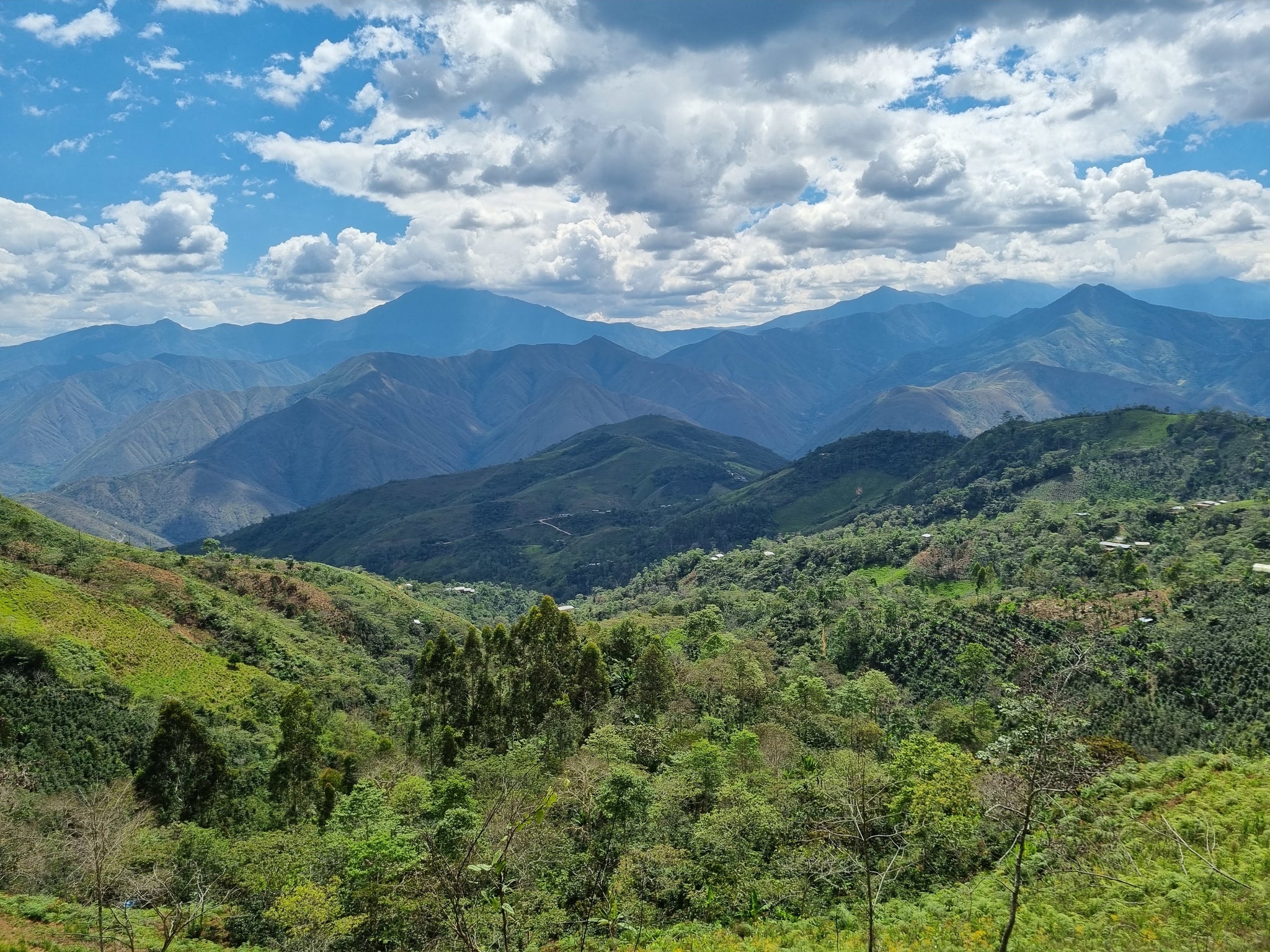
FERNANDEZ FAMILIA / PERU
Fernandez Familia / Peru
Flavor profile:
Apple, Cherry, Marzipan, Black tea.
Producer : Fernandez Familia
Country of Origin : Peru
Area of production : Jaen > Colasay
Variety : Bourbon
Process : Washed
Altitude : 1750 masl
Peru is said to be the third largest coffee producer in South America after Brazil and Colombia, and was originally known as a producer of low quality certified and fair trade coffee. However, due to its history of traditional organic farming, in recent years it has attracted new attention as a high quality organic coffee producing area.

The Fernandez family produces exceptional coffee on small farms owned by their parents, brothers, cousins, and other relatives in the Colasay district of Jaén, located in northern Peru. The farms are relatively small, with an average size of 1 to 3 hectares, and are situated at an altitude of approximately 1750 meters.
All of the coffee varieties grown on the farms are indigenous Bourbon varieties, which are quite prevalent in the area as a single variety. Although most farmers in the Colasay region cultivate nearly 100% Bourbon, the producers tend to refer to most of the other varieties as either Catimor Bourbon or Costa Rica.
The farm is a family affair, but during harvest season, additional help is required to ensure optimal timing when the coffee cherries are ripe. Harvesting is done by hand early in the morning, and the cherries are immediately placed in water. Any overripe or defective cherries, which are less dense and lighter and float to the surface, are removed at this stage.
The next day, the growers use a mechanical de-pulper to remove the skin and pulp from the parchment. The coffee is then fermented in bags or small tanks for approximately 24 hours to decompose and remove the mucilage.


In Peru, most coffee producers complete the entire process of harvesting, pulping, fermenting, and drying on their own farms. The Fernandez family also performs the refining process at their Beneficio, using small pulpers, wooden or concrete fermentation tanks.
Due to limited refining equipment, small growers typically dry their coffee on plastic sheets on the ground in shaded areas or set up small polypropylene tents on the ground for drying. Drying takes roughly 12 to 25 days until the moisture level reaches 9 to 11%.
Each farm produces a single lot, but sometimes high-quality coffee with low yield cannot be shipped as a single lot. To prevent this coffee from being mixed with lower quality regional blends or commodity coffees, blends are sometimes created by collecting coffees that meet high quality standards but have low yields. Known as a "communal blend" or "communal producer blend," this coffee increases the chances of producers receiving a premium for quality.
The term "premium" refers to an incentive mechanism that pays a price higher than the market price for high-quality coffee. By producing high-quality coffee and gaining access to premiums, growers can receive higher transaction prices and practice transparent and sustainable coffee farming. This cycle will improve the lives of the producers and improve the quality of the coffee they produce.
In the Korasay area, an organization called Origin Coffee Lab is implementing the above program. They are working to educate producers about the price structure of specialty coffee and providing feedback on the quality of the coffee they produce to improve the quality of the coffee and increase the likelihood of receiving a premium for their high-quality product.

This coffee is a blend of high-quality lots from each farm owned by the Fernandez family.
In Peru, the Quechua language (one of the official languages) has a word called "Minga," which means "all members of the community cooperate in a work that benefits everyone.
" This coffee is also produced through the collaboration of the Fernandez family and community members who work together towards a common goal.
For purchase, please click the link below → Fernandez Familia Espresso🇵🇪



